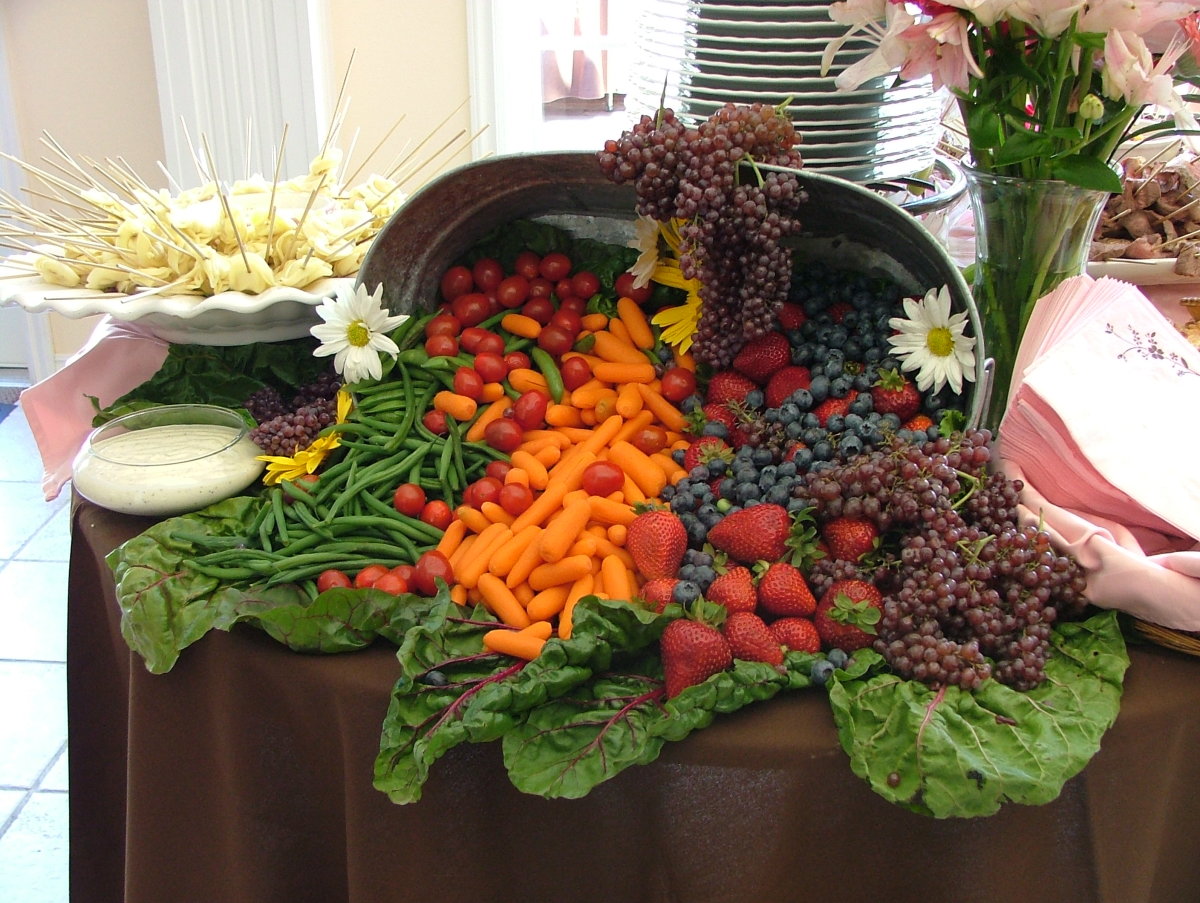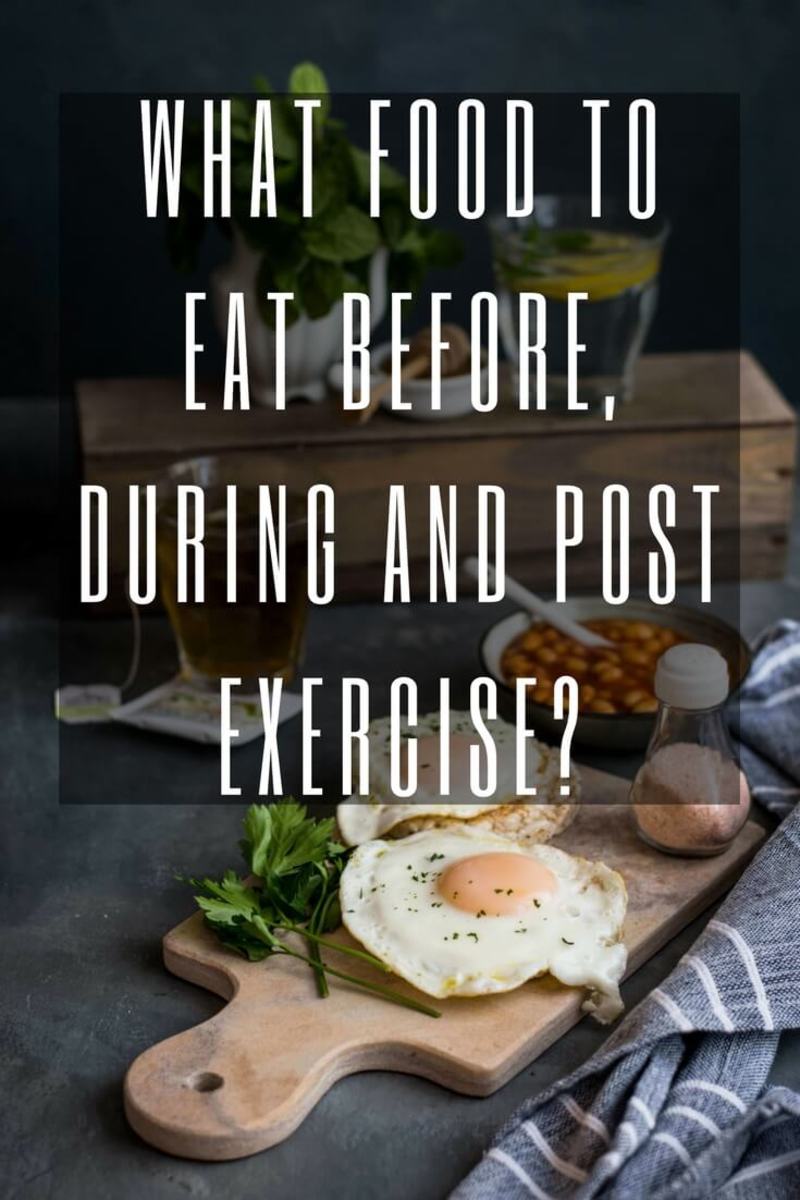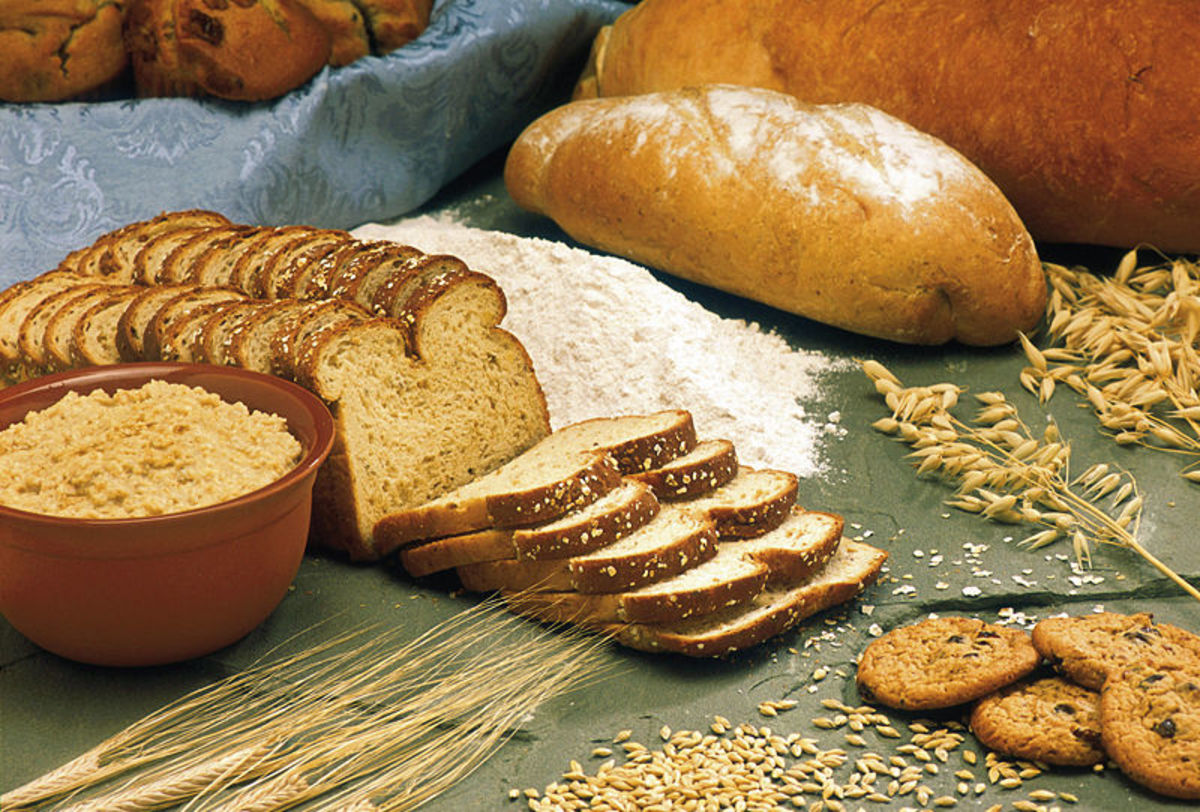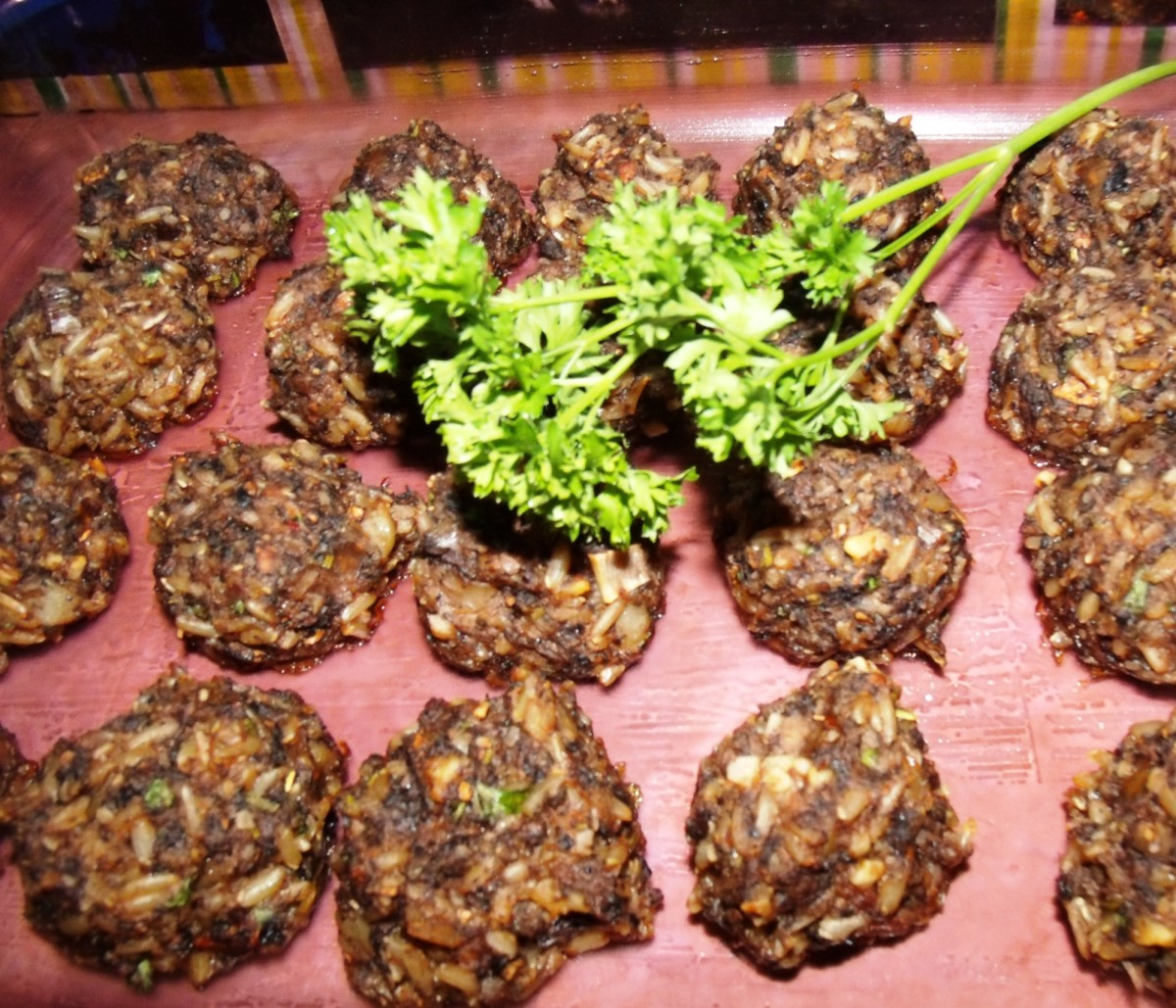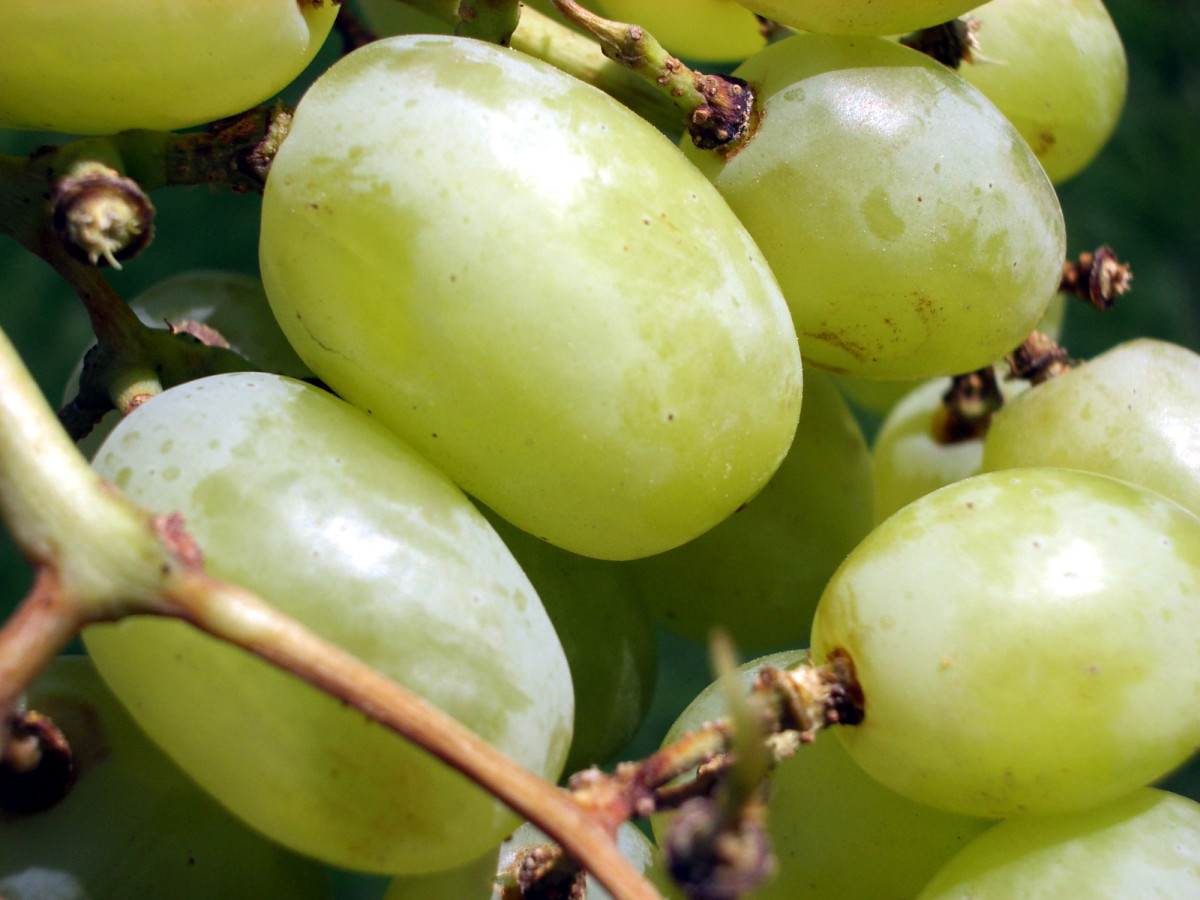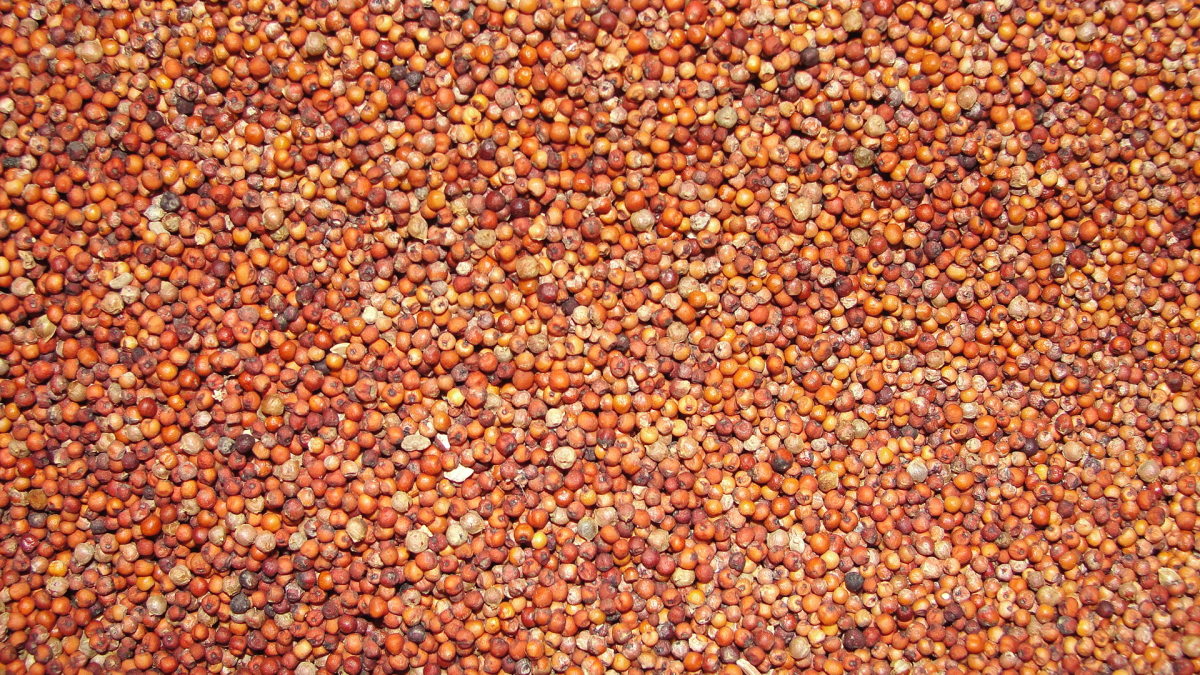Eat Whole-Foods Plant-Based Diet
Eat Mostly Plants
We should strive to have at least half our plates in every meal be from plants. This is known as a plant-based diet. In addition, it should be whole-foods as well. Hence a whole-food plant-based diet. We'll explain what that means in this article.
This is not to say that we should not eat animal products. There are benefits to eating certain types of seafood such as salmon and sardines for their beneficial omega-3 fatty acids. We get our vitamin B12 from certain meats and other animal products. Eggs in moderation are still considered healthy.
Half Our Plates Should be Vegetables and Fruits
According to the USDA ChooseMyPlate eating guide. Half our plate should consists of vegetables and fruits -- with more vegetables than fruit.
And rightfully so, because vegetables in general has a lower sugar content and are lower glycemic carbohydrates than fruits. The glycemic index measures how quickly the carbohydrates turns into sugars in our body. Slower being better for blood sugar control.
In the book Digestive Wellness, it similarly writes that ...
"If you look at your plate, at least half of what you eat each day ought to be vegetables. Cook these well, cultured them, juice them, or eat in soups or stews. Fruits and vegetables contain excellent fibers and prebiotic, protein, minerals, vitamins, polyphenols, and carbohydrates.
Example of Plant-Based Diet
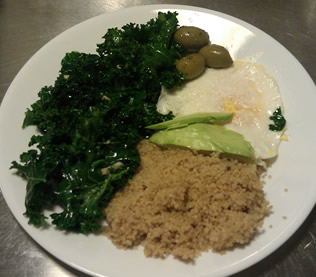
On the right is a picture of a healthy breakfast, with half the plate being vegetables -- in this case, kale.
Unfortunately, it is difficult if not impossible to find a restaurant that will serve this type of healthy food. So that basically means that if you want to eat a whole-foods, plant-based diet, you need to cook it yourself.
Besides Plant-Based, Eat Whole Foods
In order to be considered a healthy meal, not only does it have to be plant-based. But it should also be "whole food". A vegetarian pizza is plant-based, but it is not healthy because the bread is not a whole food. Bread is a refined food. A plate of pasta is also plant-based because it is not made from animals. But it is not healthy because it is not whole food.
Whole food means it was just pucked from nature without much mechanical and food-science processing done to it. Strawberries are healthy. But strawberry jam is not. Brown rice is healthy, but white rice is not.
Eat Whole Grains
Whole Grains are an important component of whole foods. Quinoa for example is considered a whole grain because it contain 100% of its original kernel including all of the bran, germ, and endosperm of the grain/seed. White rice is not a whole grain, because the bran and germ has been striped out during the refining process. Next time instead of buying the usual white rice, buy quinoa. You can cook and eat quinoa just like you do white rice.
Whole grains contain chromium which we need in trace amounts for optimum health. Chromium play a direct role in carbohydrate, fat, and protein metabolism. You might have seen chromium supplements in health food stores. Do you know what they are for? It is for blood glucose control. That is because chromium improves the insulin sensitivity so that glucose fuel can more easily enter the cells. For healthy individuals for which your doctor did not suggest taking chromium, it would be better eating whole grains for the chromium instead. The body only needs chromium in trace amounts.
Food as Medicine
The title of the documentary Forks over Knives, is in reference to the fact that we should be using forks instead of knives -- use the fork to eat plant-based foods, instead of knives to cut meat.
The documentary showed how people who went on a whole-foods plant-based diet was able improve their cholesterol profile, decrease blood pressure, decrease inflammation, have more energy, and even show signs of reversal of cardiovascular diseases.
A few of the doctors shown in the film used foods as part of their treatment for their patients whom they try to wean off their medications. Indeed, food can be an important medication. Food may not act as quickly as a pill. You will not see any change after one meal. But over the course of many weeks and maintained over a lifetime, food has a greater range of benefits and can sometimes be more effective than pharmaceutical drugs.
Eat More Vegetables
Most American's are not eating enough vegetables. Their vegetable consumption is less than 10% of their caloric intake. And if you exclude the not-as-nutritious potatoes vegetable (such as potato chips and fries) from the calculation, this number is more like 5%.
This statistic is from Joel Furrman's book Super Immunity, where he writes...
"...long term observational studies do indeed demonstrate that vegetable consumption is the most important factor in preventing chronic diseases and premature death." [page 15]
Others have come to similar conclusions. Michael Pollen's book, In Defense of Food, basically sums up how we should eat without getting overly complicated: "Eat food. Not too much. Mostly plants."
In the YouTube video on the right, Dr. Ellen Hughes said she tripled her vegetable consumption -- so motivated was she by the data she found in researching for the talk.
More Articles on Health
- Doctors Recommend Taking Vitamins
- Why Sugar is Bad for Health
- Kale's Health Benefits
Kale is one of the most nutritious vegetables. It scores the highest Aggregate Nutrient Density Index score there is. It has the health benefits of being both a cruciferous vegetable and a dark leafy green vegetables.




